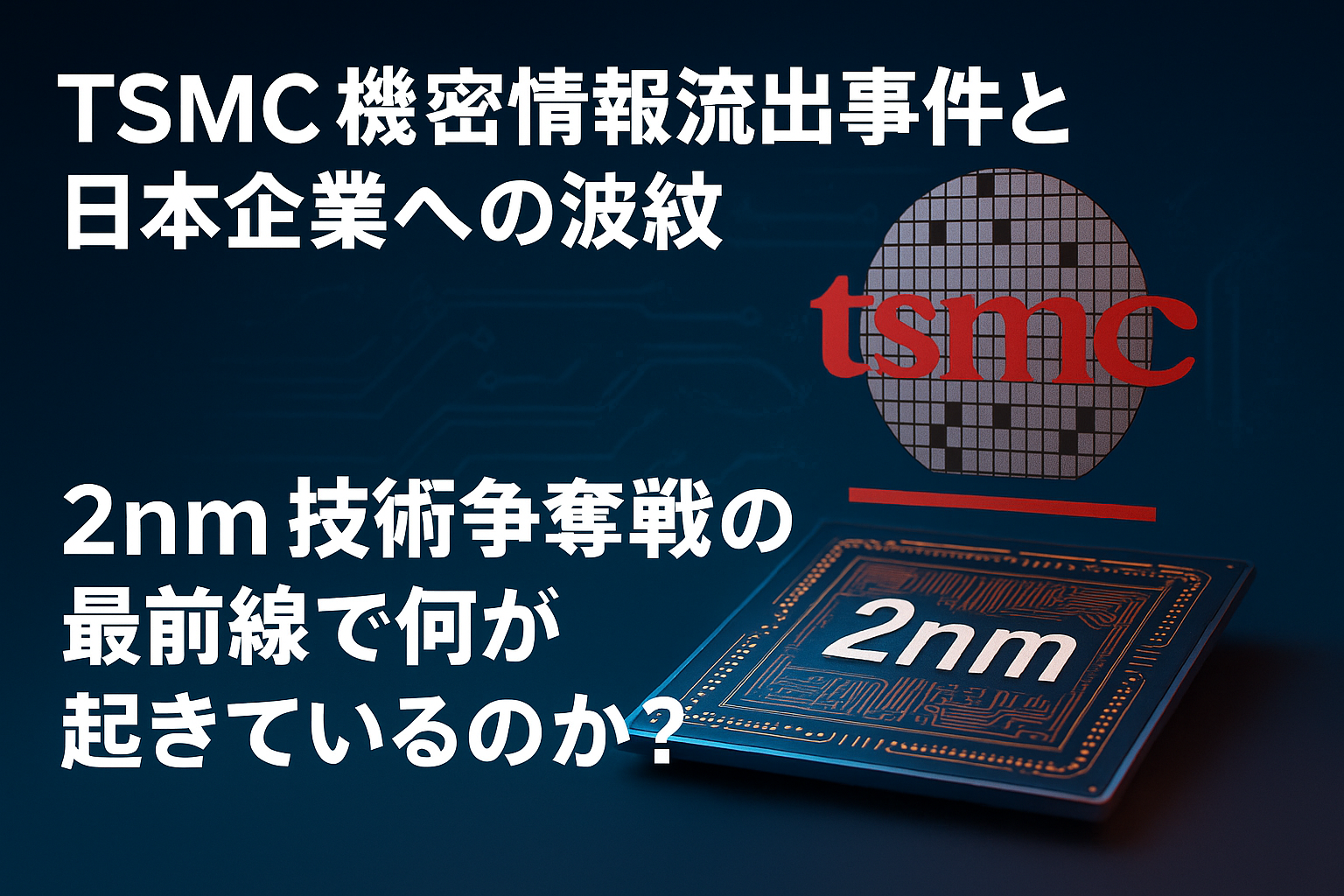In August 2025, a major shockwave rippled through the semiconductor industry. A serious incident emerged involving several employees of Taiwan’s world-leading semiconductor foundry, TSMC (Taiwan Semiconductor Manufacturing Company), who were discovered to have illicitly obtained confidential information about the company’s cutting-edge technologies. They have been detained on suspicion of violating the National Security Act.
The Core of the Case: The 2nm Process as a “National Secret”
The leaked information is believed to pertain to TSMC’s 2-nanometer (2nm) process technology, scheduled for mass production in the latter half of 2025. This technology sits at the forefront of semiconductor manufacturing and remains uncommercialized—it’s the “core of the future.”
Far from being just a corporate trade secret, the 2nm process is a critical technology directly tied to national strategy. As a pillar of Taiwan’s economy, TSMC plays a crucial role in the country’s security. This incident is being seen not only as a case of industrial espionage, but also as a national crisis threatening economic security.
Why Is 2nm So Important?
Semiconductors at the 2nm node can dramatically improve processing performance while significantly reducing power consumption. This advancement underpins next-generation industries such as AI, quantum computing, autonomous driving, and 5G/6G communications. It’s said that the nation or company that dominates this technology will gain digital supremacy.
Only a handful of companies—TSMC, Samsung, Intel, and Japan’s Rapidus—are operating in this ultra-advanced field. That’s why the implications of a data leak are profound, with potential to influence international competition.
Prosecutorial Action and Reports of a Search Involving “Tokyo Electron”
Taiwan’s High Prosecutors Office launched an internal investigation at TSMC after detecting suspicious file access. Ultimately, it conducted searches at six locations and arrested six engineers, with two being formally detained—marking a full-fledged criminal investigation.
A notable development is a report by local media outlet United Daily News, which claims that a search warrant was also executed at “Tokyo Electron Taiwan” (a subsidiary of Japan’s Tokyo Electron). Although no official comments have been released by the prosecution or Tokyo Electron, the mere suspicion of Japanese involvement carries serious diplomatic and economic implications.
A Real-World “Technology Hegemony War” Between Nations
This incident should not be viewed merely as a corporate scandal—it is a manifestation of the broader struggle for economic security and technological supremacy among nations. Against the backdrop of U.S.-China tensions, countries are re-evaluating supply chains and working to secure their own cutting-edge technologies. Taiwan and Japan are no exceptions—they are being swept into this geopolitical current.
Governments are investing in the development and protection of 2nm technologies not just for economic gain, but for applications in national infrastructure—military, space, and energy systems. This is why managing such technologies is increasingly viewed as a “national responsibility.”
Challenges Confronting Japan
If a Japanese company were indeed involved, it could severely damage Japan’s external credibility and economic security policies. As Japan—led by Rapidus—joins the race to develop 2nm technology, it must re-examine its ethical standards and technology management systems.
Government and industry stakeholders now face a pressing challenge: how to enhance technological capabilities and build international trust within the framework of global rules and order.
Is This Just the Tip of the Iceberg?
This case may appear, on the surface, to involve just a few engineers engaging in misconduct. But beneath it lies a global struggle over next-generation technology that involves entire nations. Japan cannot afford to treat this as someone else’s problem.
For companies, researchers, and the government alike, it is time to reflect on how Japan can reaffirm its position as a trusted technological leader—anchored in ethics, security, and innovation.

